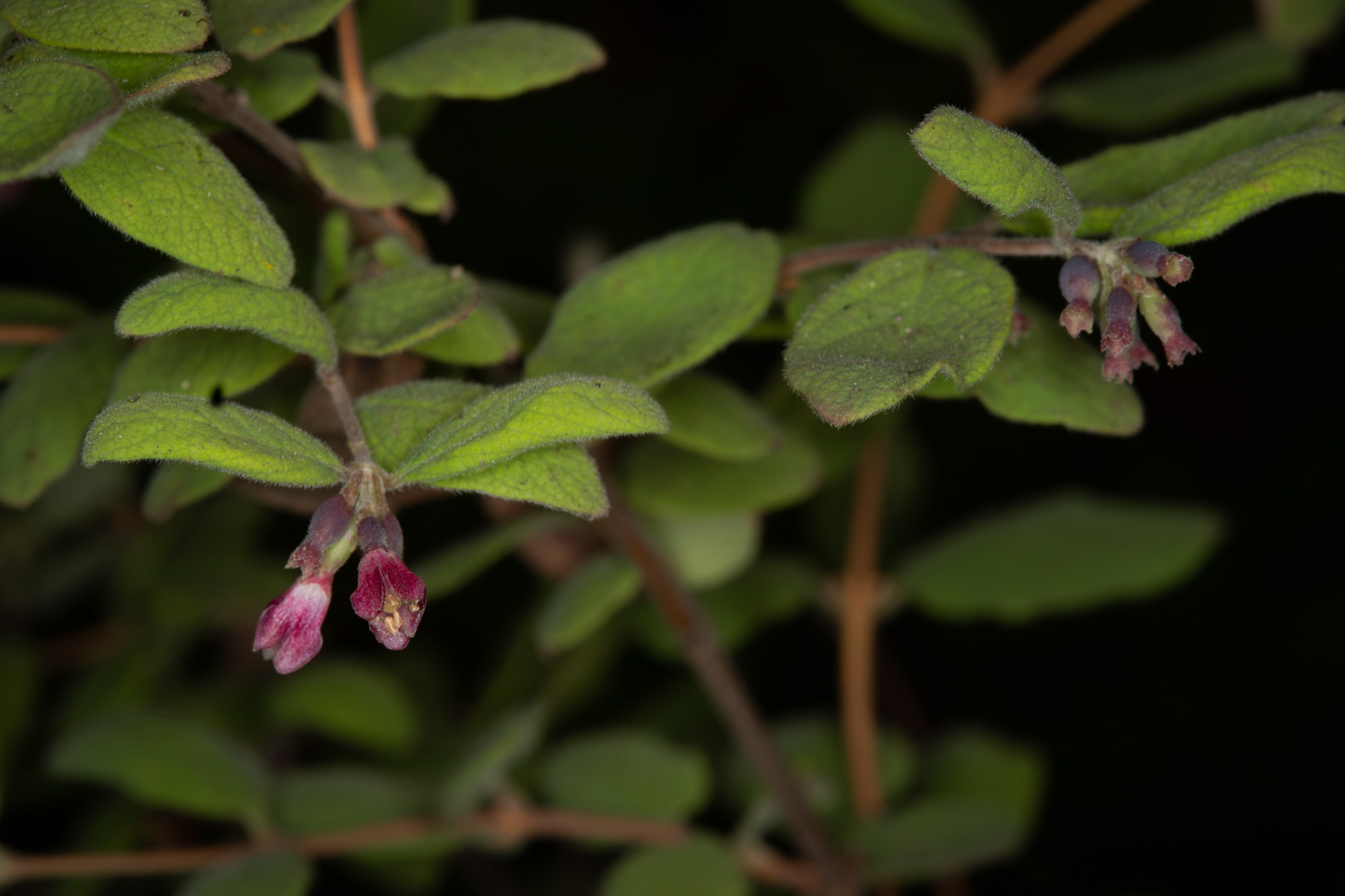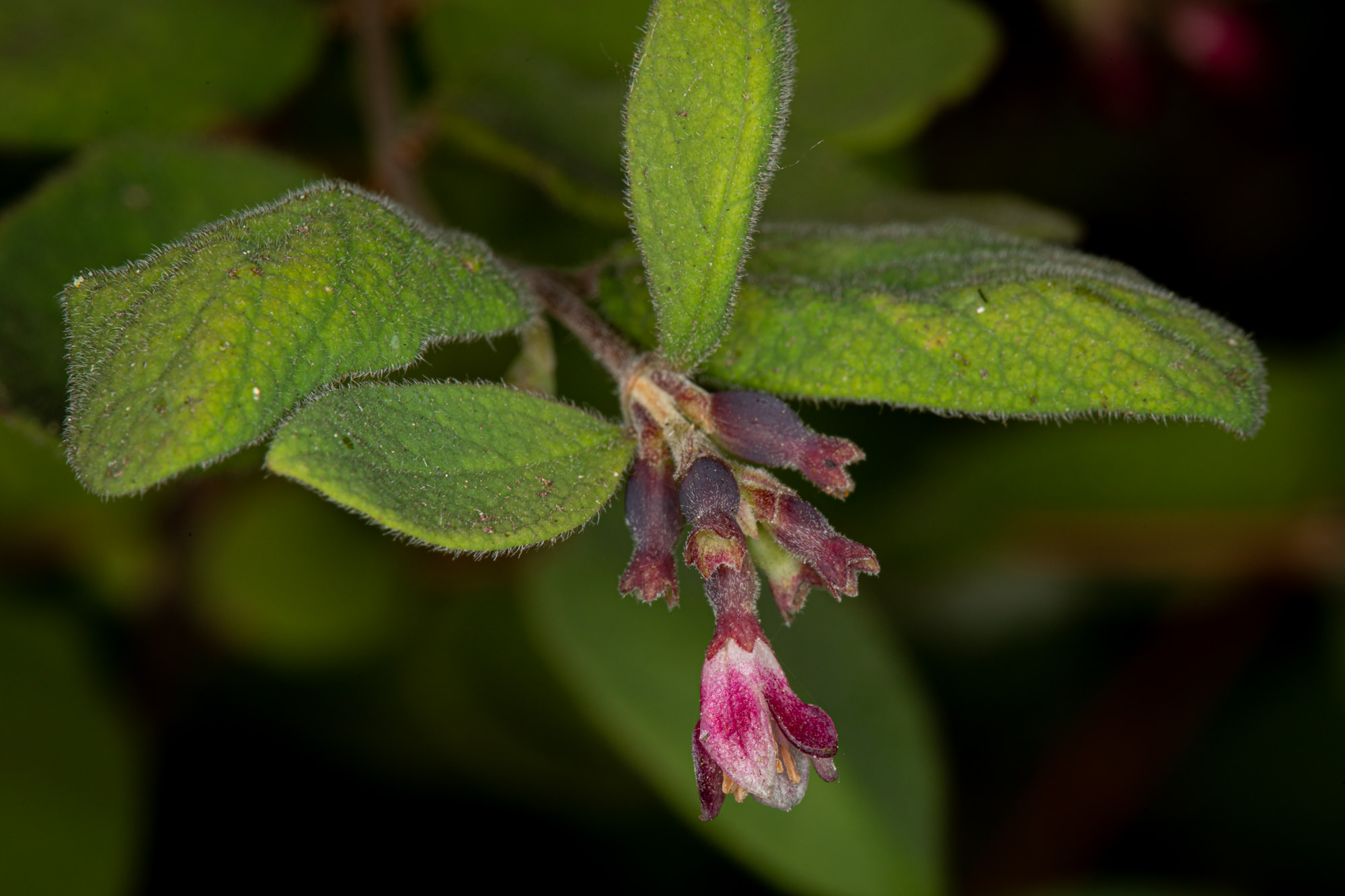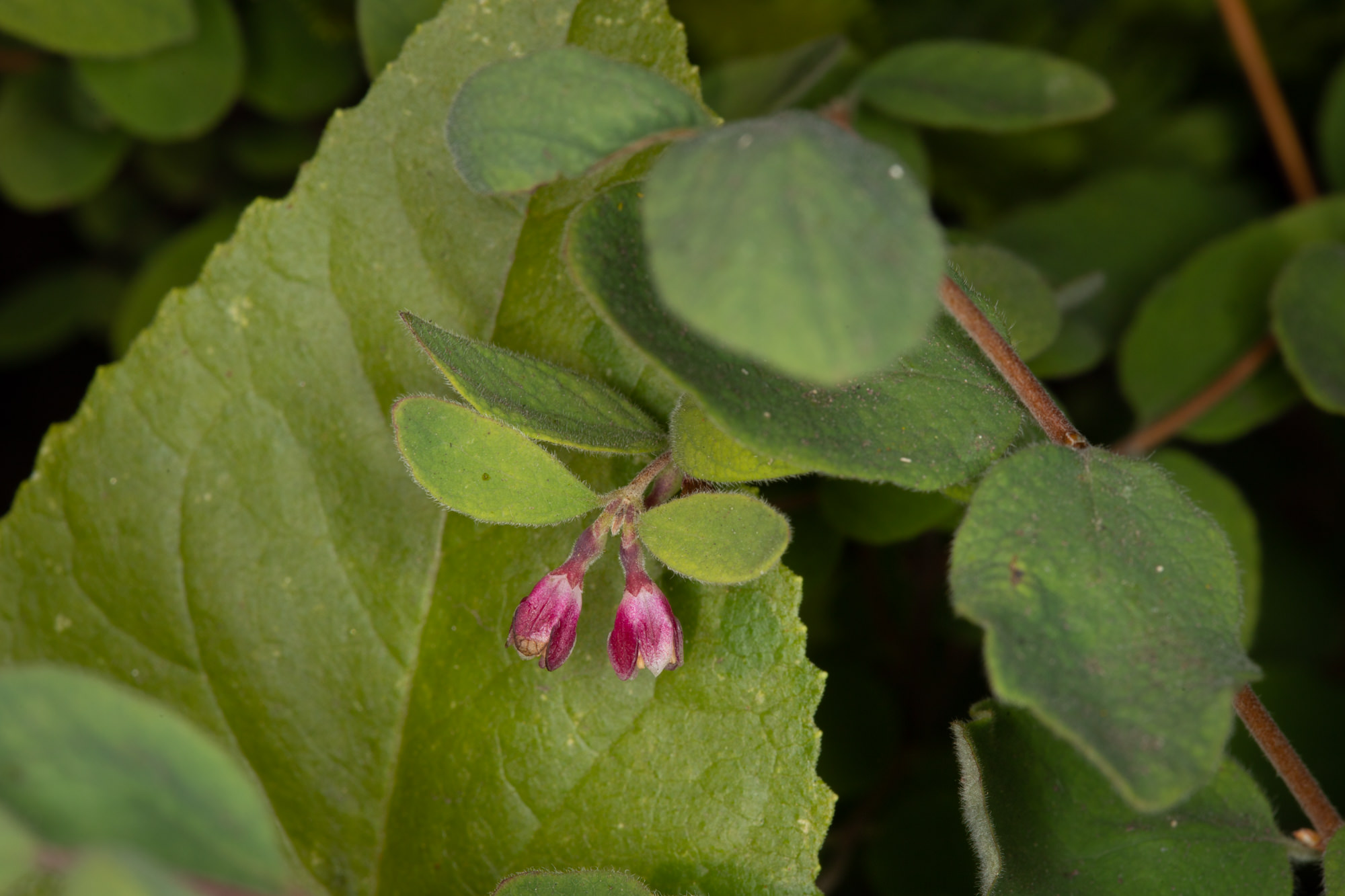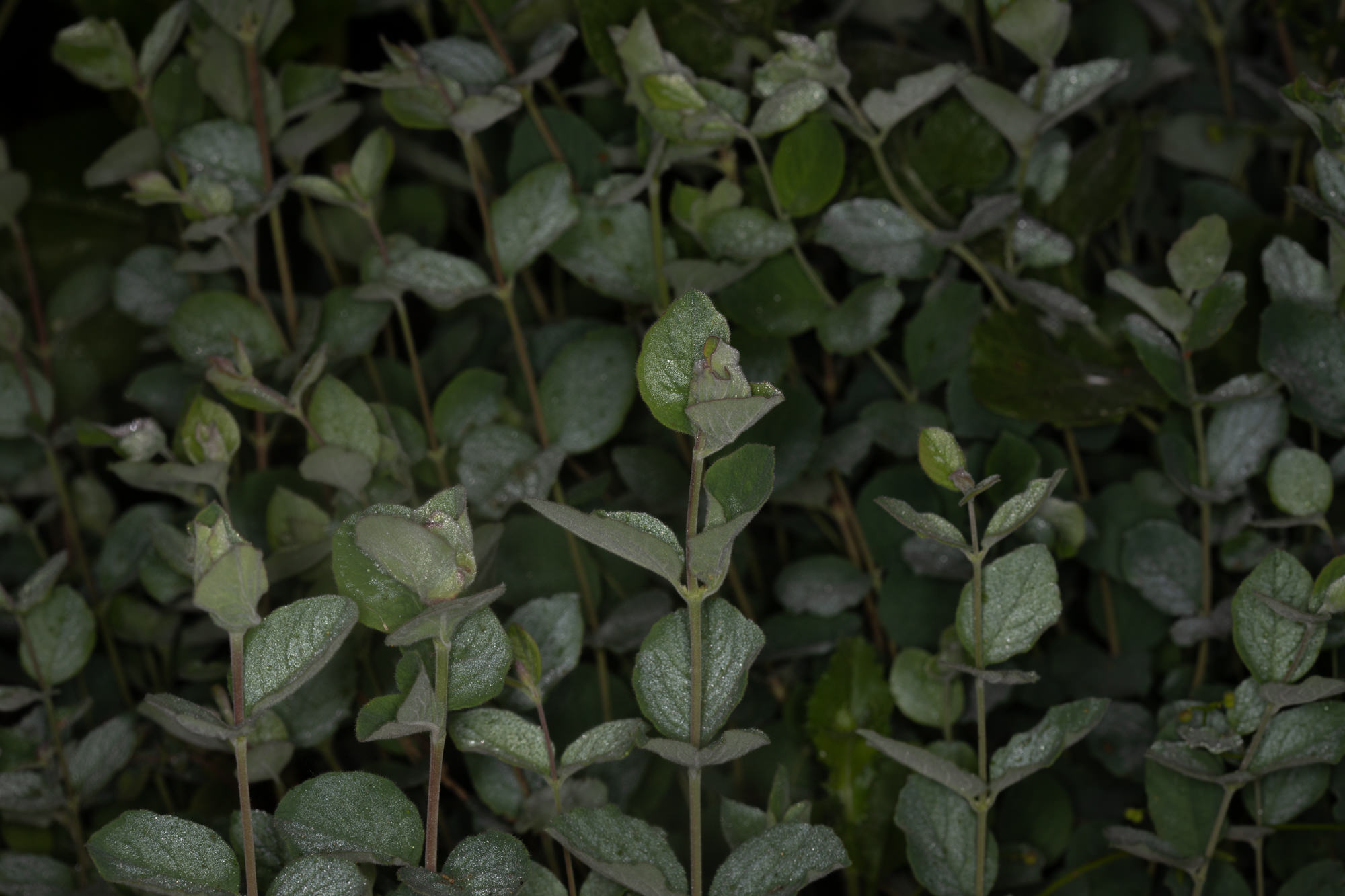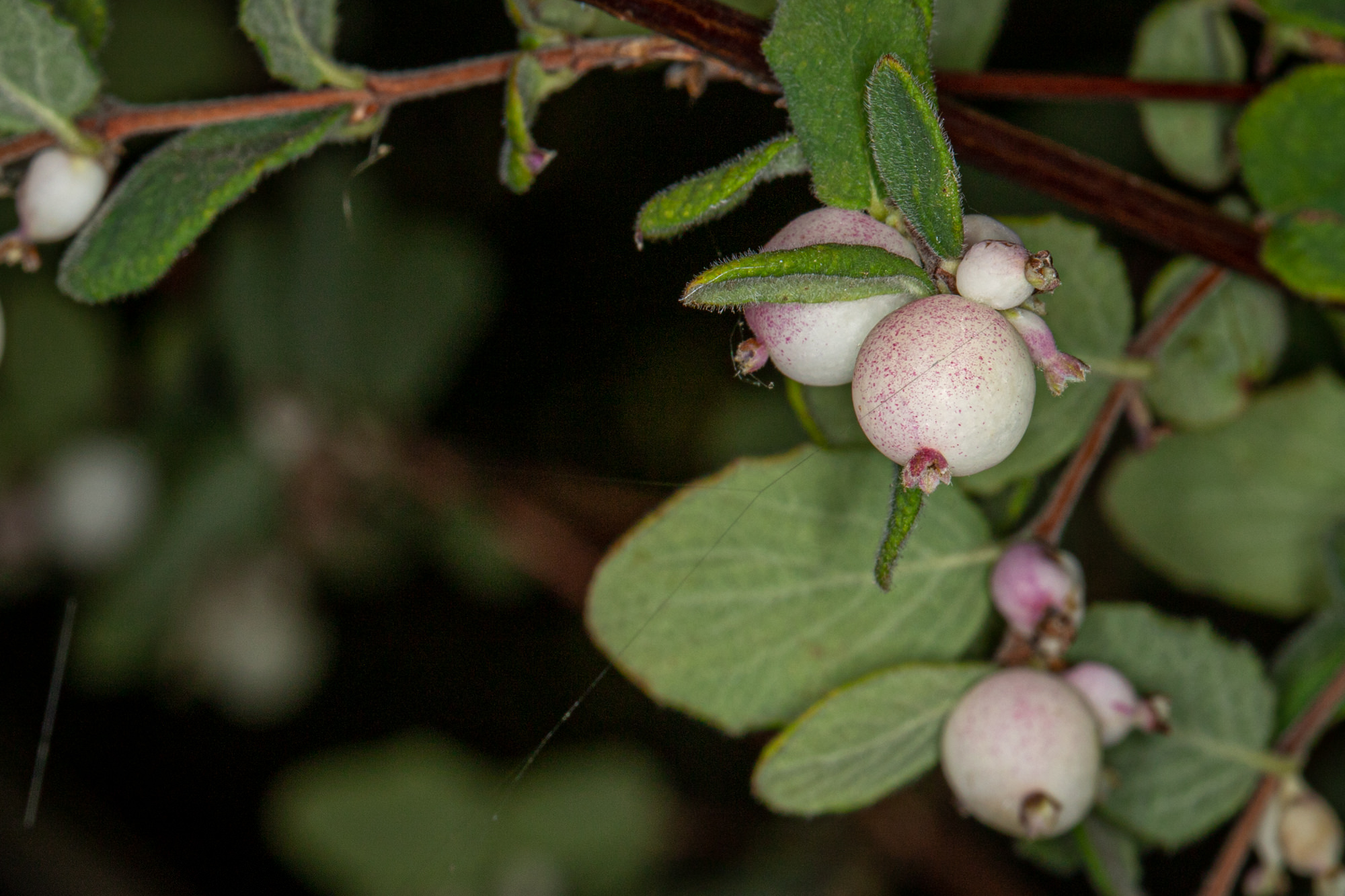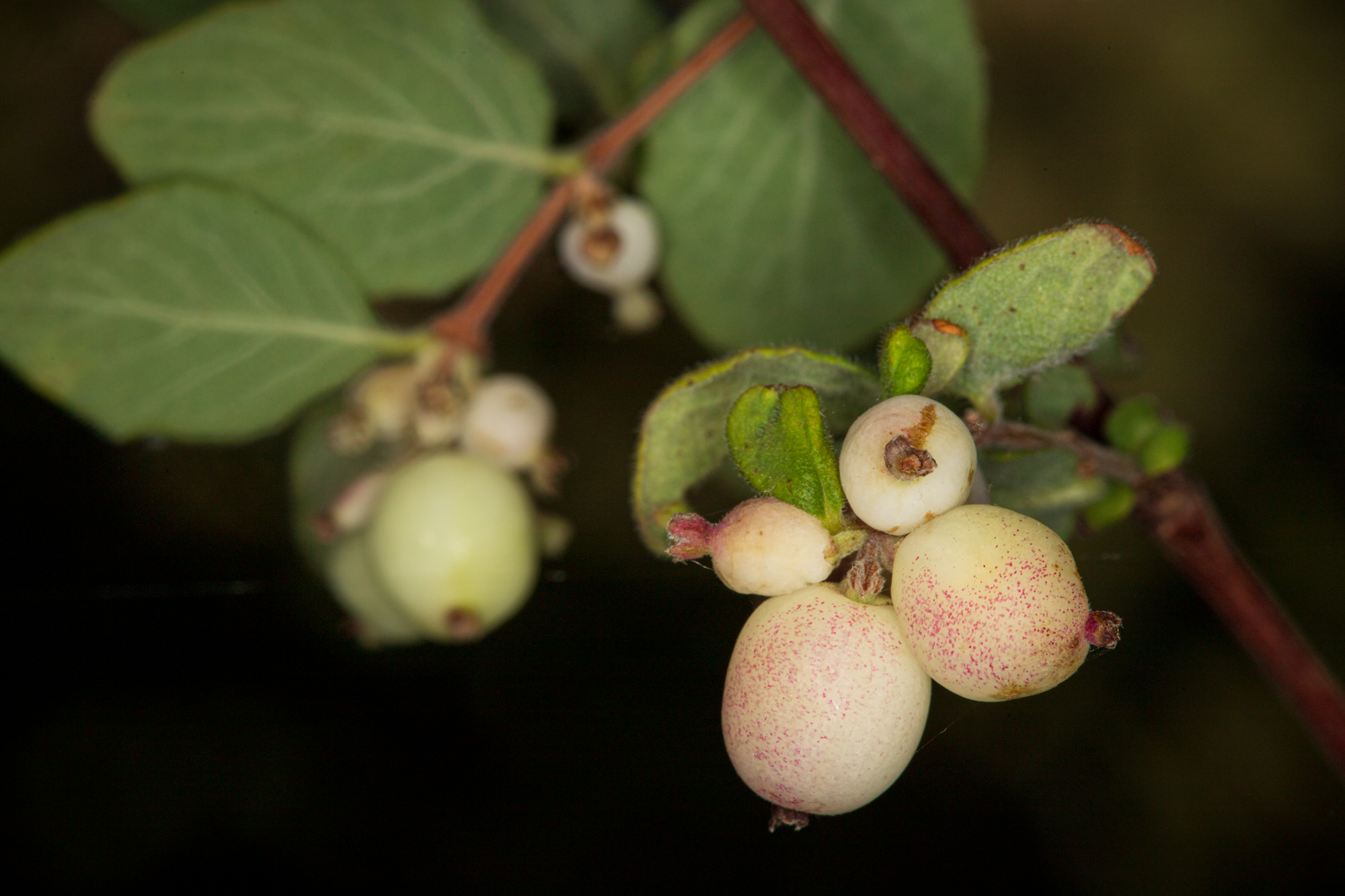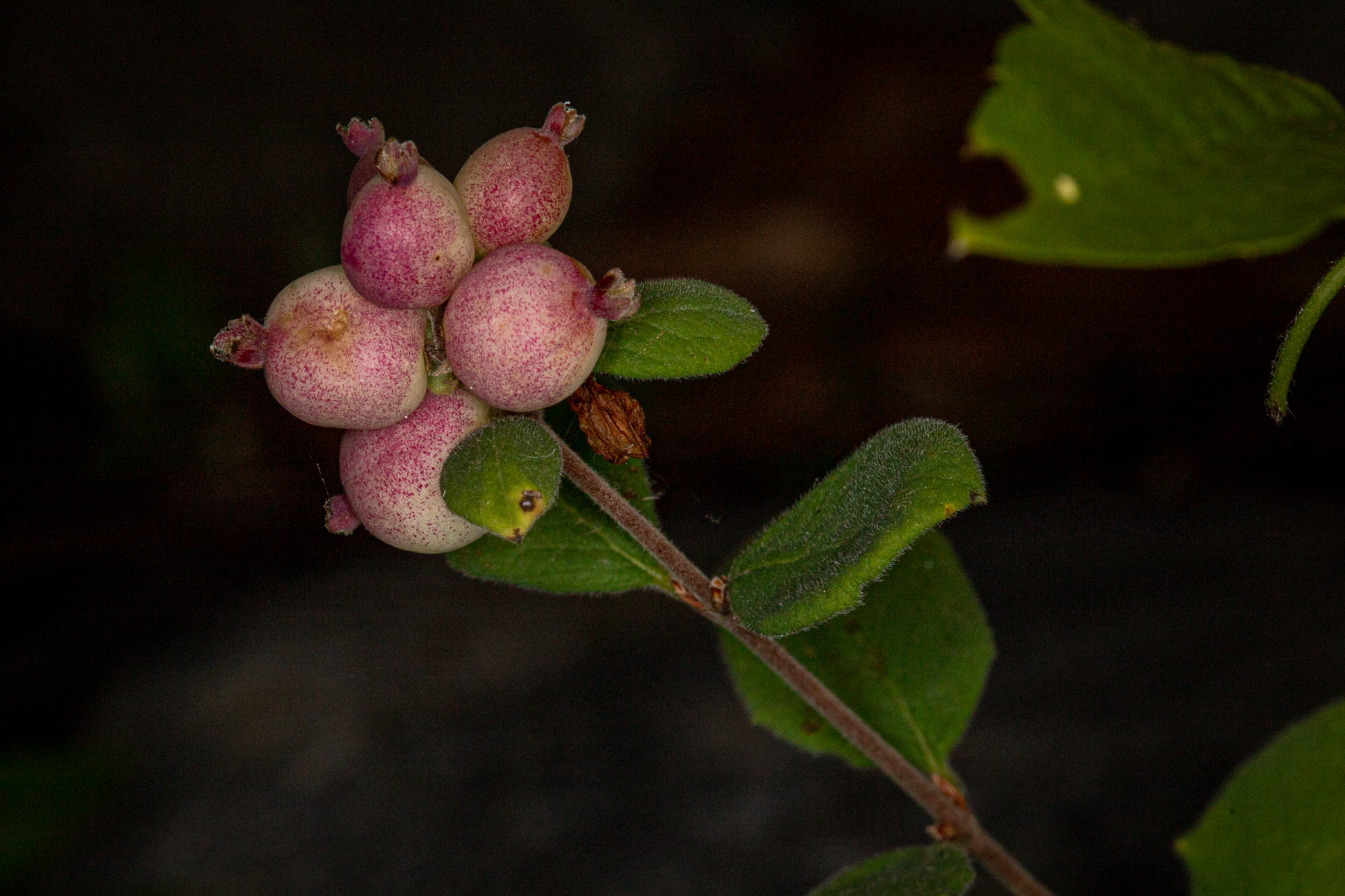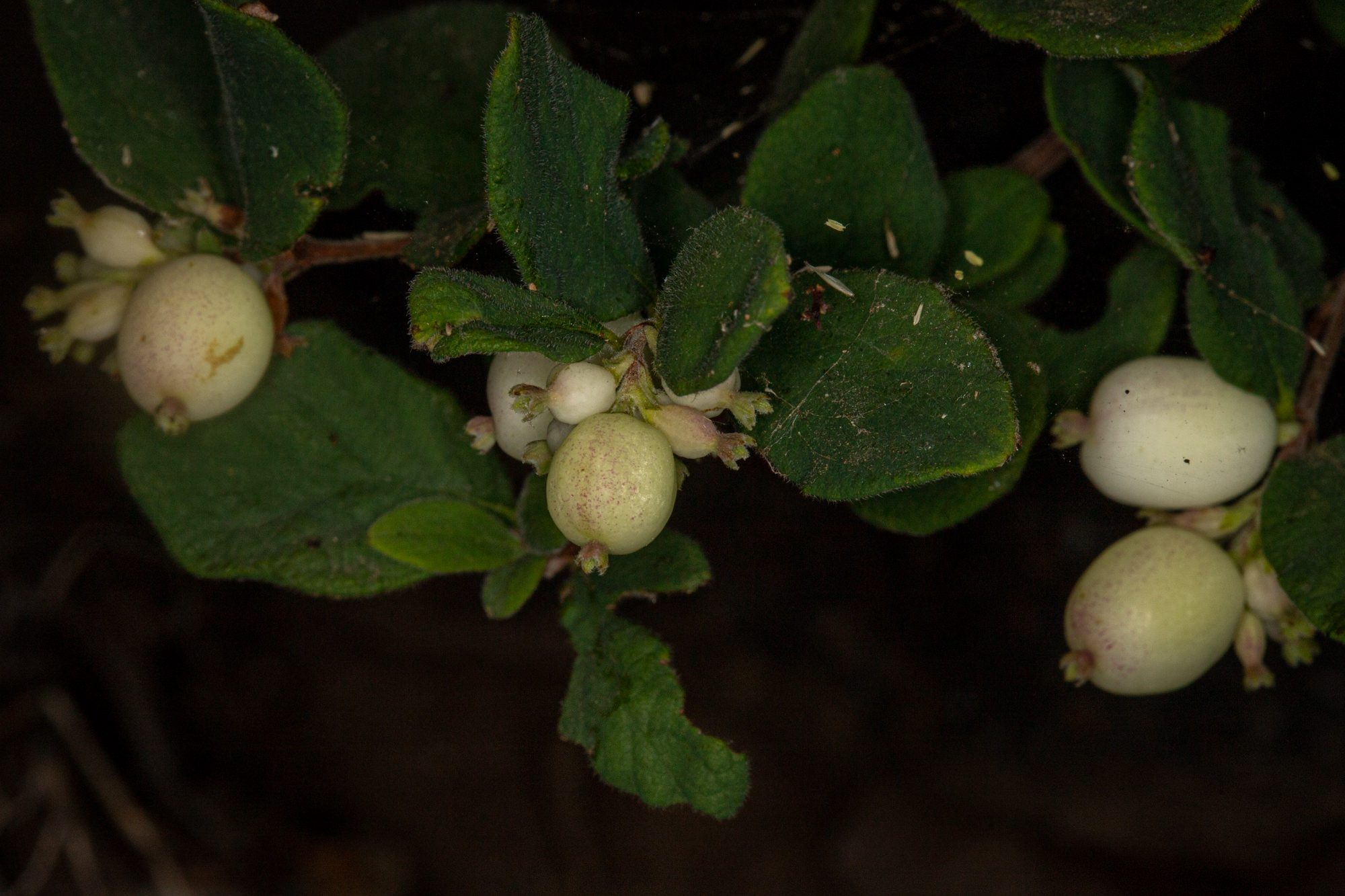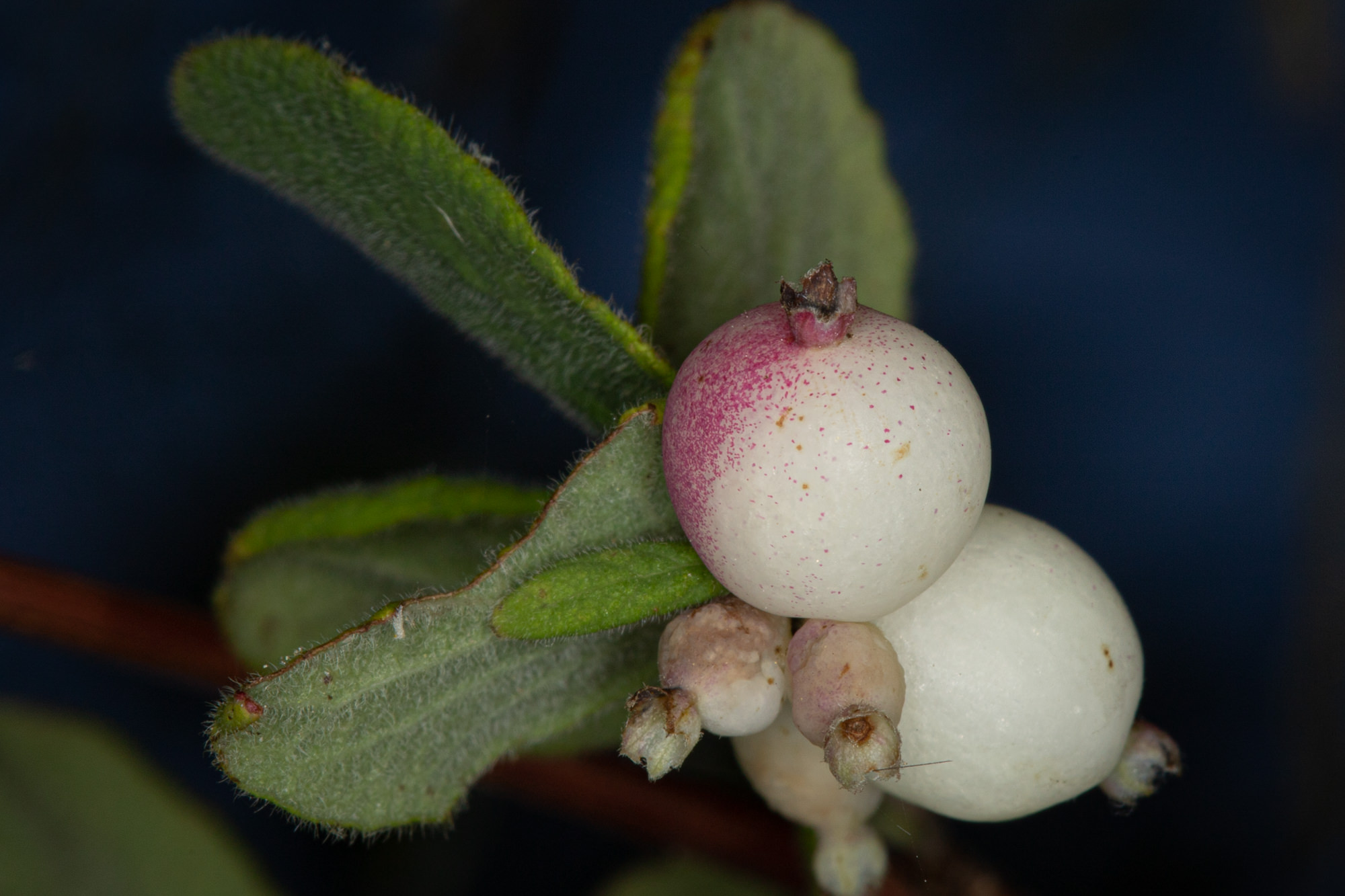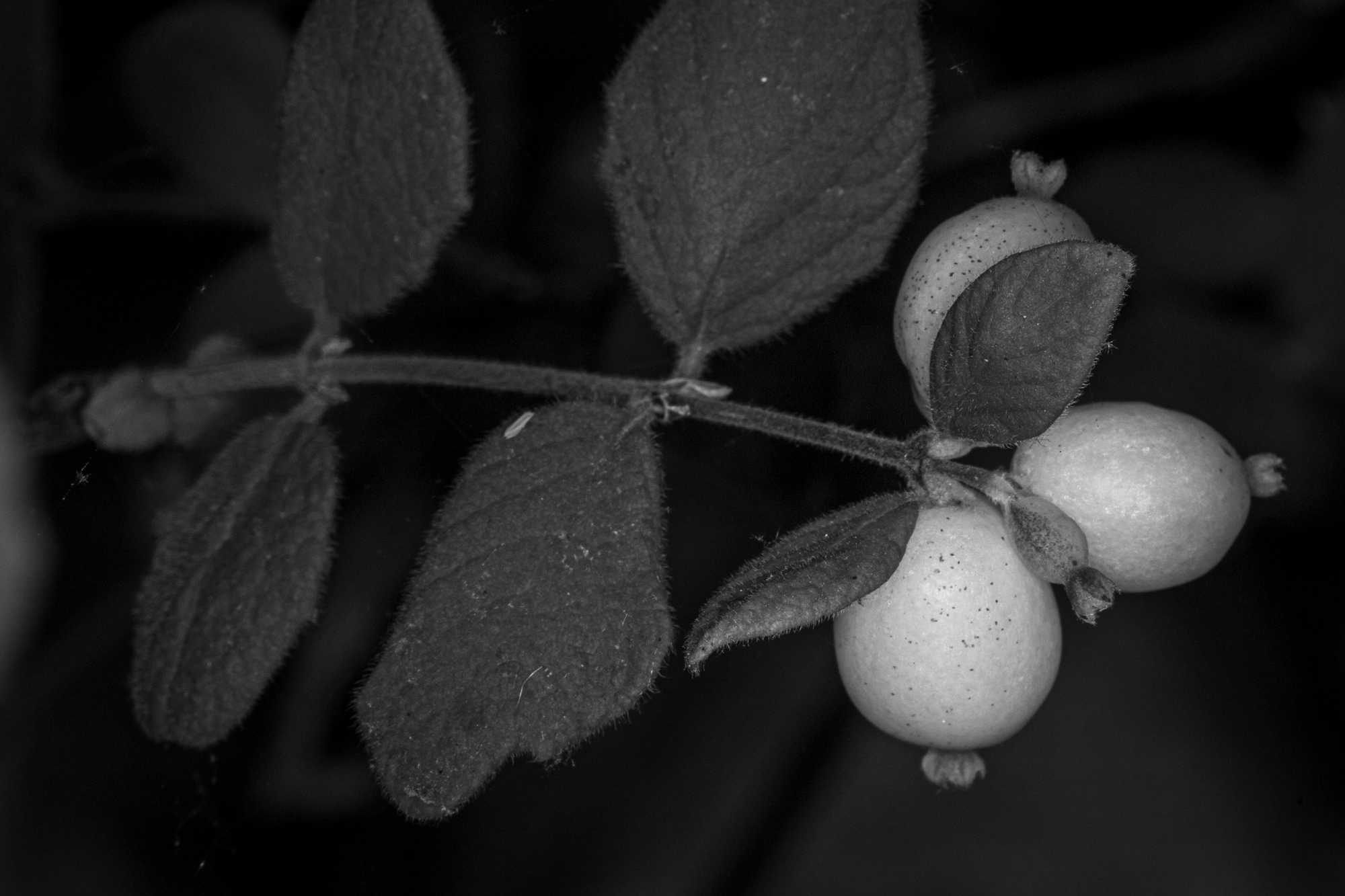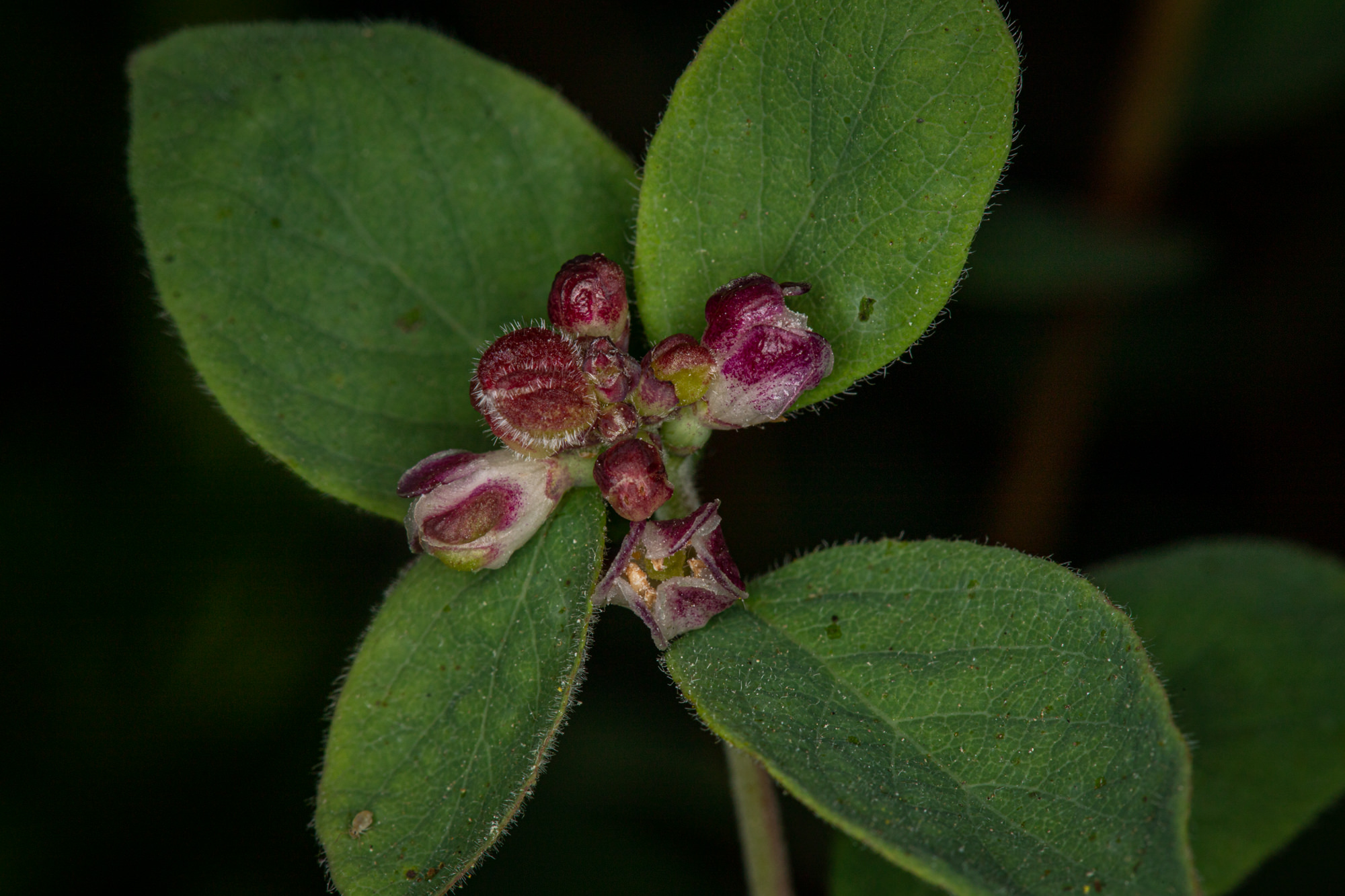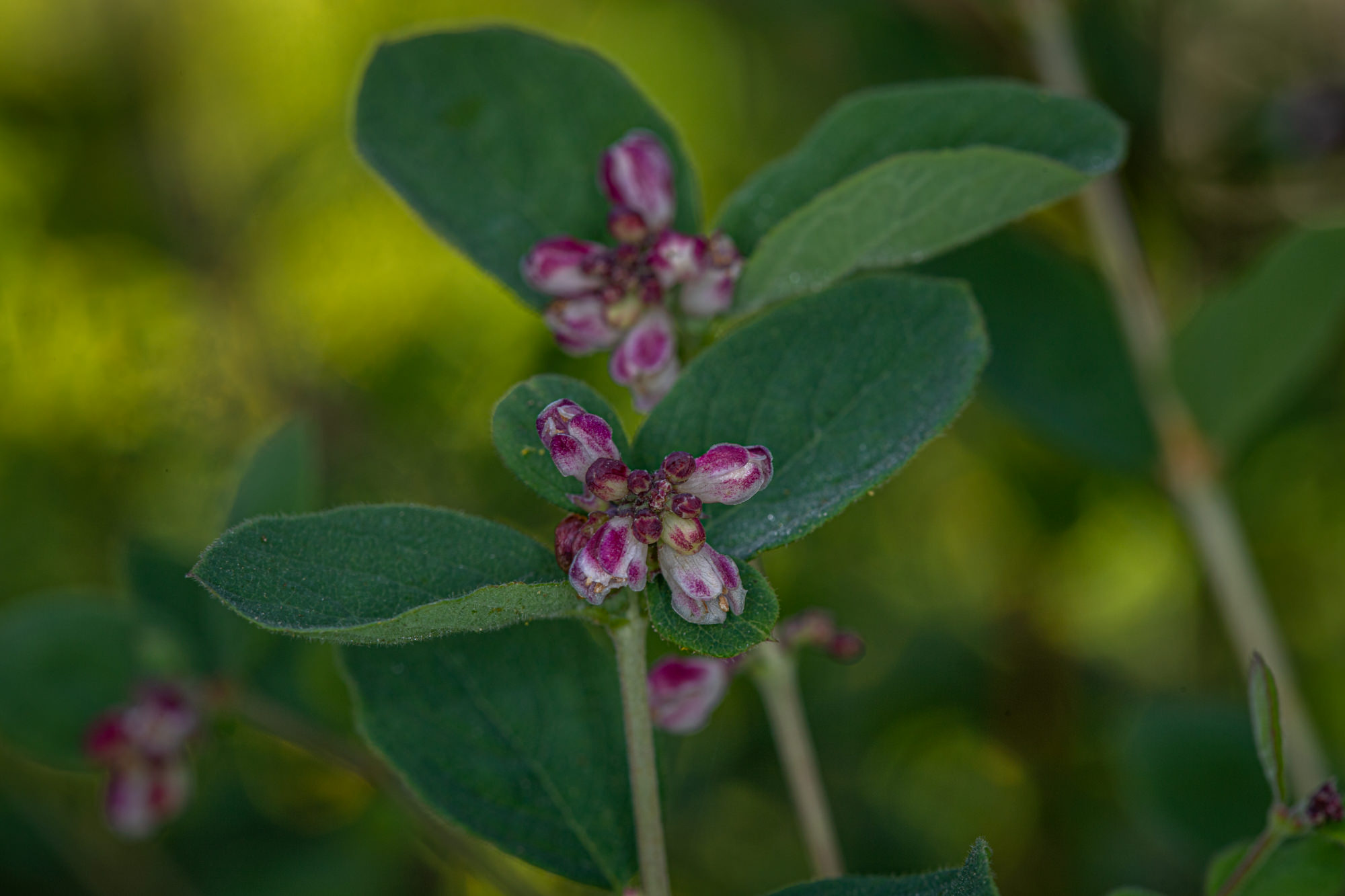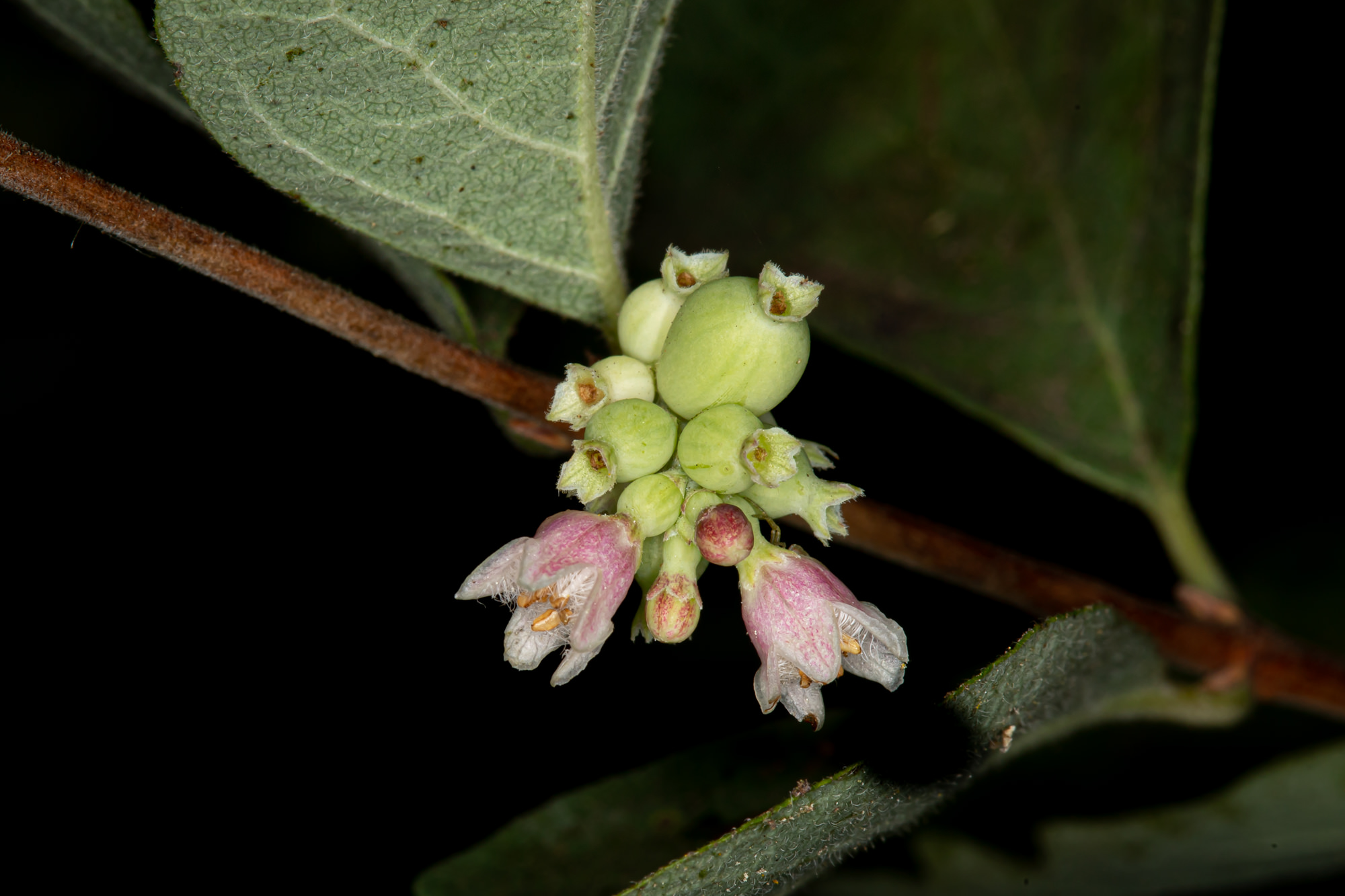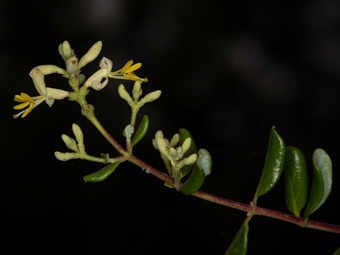Snowberry
- Symphoricarpos mollis
| Common Name(s): | Snowberry |
| Scientific Name: | Symphoricarpos mollis |
| Family: | Caprifoliaceae (Honeysuckle) |
| Plant Type: | Perennial |
| Size: | up to 18 inches |
| Habitat: | Chaparral |
| Blooms: | March to May |
| Fire Response: | Stump Sprout or Seed |
Snowberry - Symphoricarpos mollis - is native to California and takes the form of a small shrub (commonly 18 inches tall by several feet wide). Snowberry grows in various niches - ridges, slopes, open places in woodland from sea level to 5,000 feet. Pictures for this page came from Newton Canyon and Upper Sycamore - near the seasonal creeks. Small flowers that are easy to ignore among the more vibrant blooming annual in April to May may eventually produce unexpectedly white fruits - hence the name. An important food source for birds and provides nesting cover for the endangered least Bell's vireo.
Leaves appear opposite each other on stalks with small hairs; The flowers form in clusters that are light pink and bell-shaped which become snow-white berries in late summer. The fruits are considered unpalatable (kind of a soapy taste) - however birds and animals consume them to help disperse the seeds paving the way for future generations of plants.
Native uses: Crushed leaves were used to treat sores and wounds. The bark was boiled to remedy tuberculosis and venereal disease. Snowberry contains a glycoside categorized as a Saponin. This chemical was used to create plant based soaps and could be used to stun or kill fish. Stems were used for brooms, brushes, arrows and pipes.
Fire response: Fire will top kill this plant. Underground rhizomes survive most cyclical fires (a fire that burns too hot will kill the rhizomes). As a backup, this plant can germinate from seed.
Link to Calflora.net - the best source of this fascinating information
Name Origin:
Symphoricarpos: from the Greek symphorein, "borne together," and karpos, "fruit," and so meaning "fruit borne together" because of the clustered berries. The genus Symphoricarpos was published by Henri Louis Duhamel du Monceau in 1755.
mollis: smooth, or with soft velvety hair.
Contributed by George Sherman
Featured Plants in the Caprifoliaceae (Honeysuckle) Family:
Last modified: August 21 2024 15:18:55.
Number of Images: 14
Image Size Total: 6,342,105
References:
Wildflowers of the Santa Monica Mountains, by Milt McAuleyFlowering Plants: The Santa Monica Mountains, Coastal and Chaparral Regions of Southern California, by Nancy Dale
Chumash Ethnobotany: Plant Knowledge Among the Chumash People, by Jan Timbrook
Leaf Shapes Primer - Botanical Terms for Leaves: - Link

